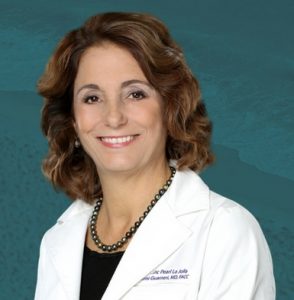Integrative Medicine is the Solution to Chronic Illness
 From alleviating symptoms of heart disease to efficiently treating trauma patients, modern medicine has ushered in myriad obvious benefits. But it also comes with limitations that the medical community has been slow to recognize. Across the specialties, physicians have been trained in acute care, but not preventive care. For instance, when faced with a sick patient, a doctor’s routine response is to begin implementing a diagnostic and treatment plan. Too often, however, doctors fail to ask the key question that addresses wider concerns: What factors caused this particular ailment to show up in this patient? In other words, doctors may know how to restore blood to a diseased heart, but are they educated about all the interrelated aspects of heart disease prevention in the first place?
From alleviating symptoms of heart disease to efficiently treating trauma patients, modern medicine has ushered in myriad obvious benefits. But it also comes with limitations that the medical community has been slow to recognize. Across the specialties, physicians have been trained in acute care, but not preventive care. For instance, when faced with a sick patient, a doctor’s routine response is to begin implementing a diagnostic and treatment plan. Too often, however, doctors fail to ask the key question that addresses wider concerns: What factors caused this particular ailment to show up in this patient? In other words, doctors may know how to restore blood to a diseased heart, but are they educated about all the interrelated aspects of heart disease prevention in the first place?
What we know today about chronic disease treatment leaves a lot to be desired. In 2009, the World Health Organization said that chronic disease is the most severe threat to global economic development. Consider that three in ten deaths are related to cardiovascular disease, ten percent of world’s population has diabetes, and eight million deaths every year can be attributed to indoor and outdoor pollution. We know that the health of human beings is related to the health of the planet. Informed by the science of health, we are also keenly aware about the harmful effects of exposure to chemicals and about the risk of eating produce treated with certain pesticides. So, why aren’t we putting the science of health into better practice?
Dr. Mimi Guarneri – president of the Academy of Integrative Health and Medicine and a founding board member of the American Board of Integrative Medicine (ABOIM) – says we need a more holistic model of health care, a shift away from traditional medicine that has a pill for every ailment. Medication is just a small piece of a holistic model that embraces body, mind, emotions, and spirit. Dr. Guarneri believes that the solution to treating chronic illness lies in integrative health and medicine, the essence of which is to get to the underlying cause of an illness in order to reverse the process. She calls for a return to the wisdom of the global healing traditions, such as Ayuveda and traditional Chinese medicine, which teach healthcare providers how to keep people well.
Dr. Guarneri promotes an approach to patient care that utilizes appropriate therapies for optimal health. In treating chronic illness, physicians should take into account lifestyle and environmental factors such as a patient’s diet, exercise, his or her community, and how the patient responds to stress. As for genetics, research has shown that lifestyle changes like exercise, yoga, a vegan diet and meditation can downregulate cancer genes.
A model that embraces human beings as much more than our physical bodies recognizes that there are links between heart disease and ailments such as anxiety, stress, and depression. It recognizes – as studies also show – that chronic stress raises levels of cholesterol and blood sugar, and is even linked to osteoporosis. Dr. Guarneri sees illness prevention as the foundation of health care and encourages medical professionals to work collaboratively to heal body, mind, and spirit.
The ABOIM, a Member Board of the American Board of Physician Specialties® (ABPS), espouses healthy living and illness prevention, and offers certification in integrative medicine. For more information about the ABOIM, contact the ABPS today.






